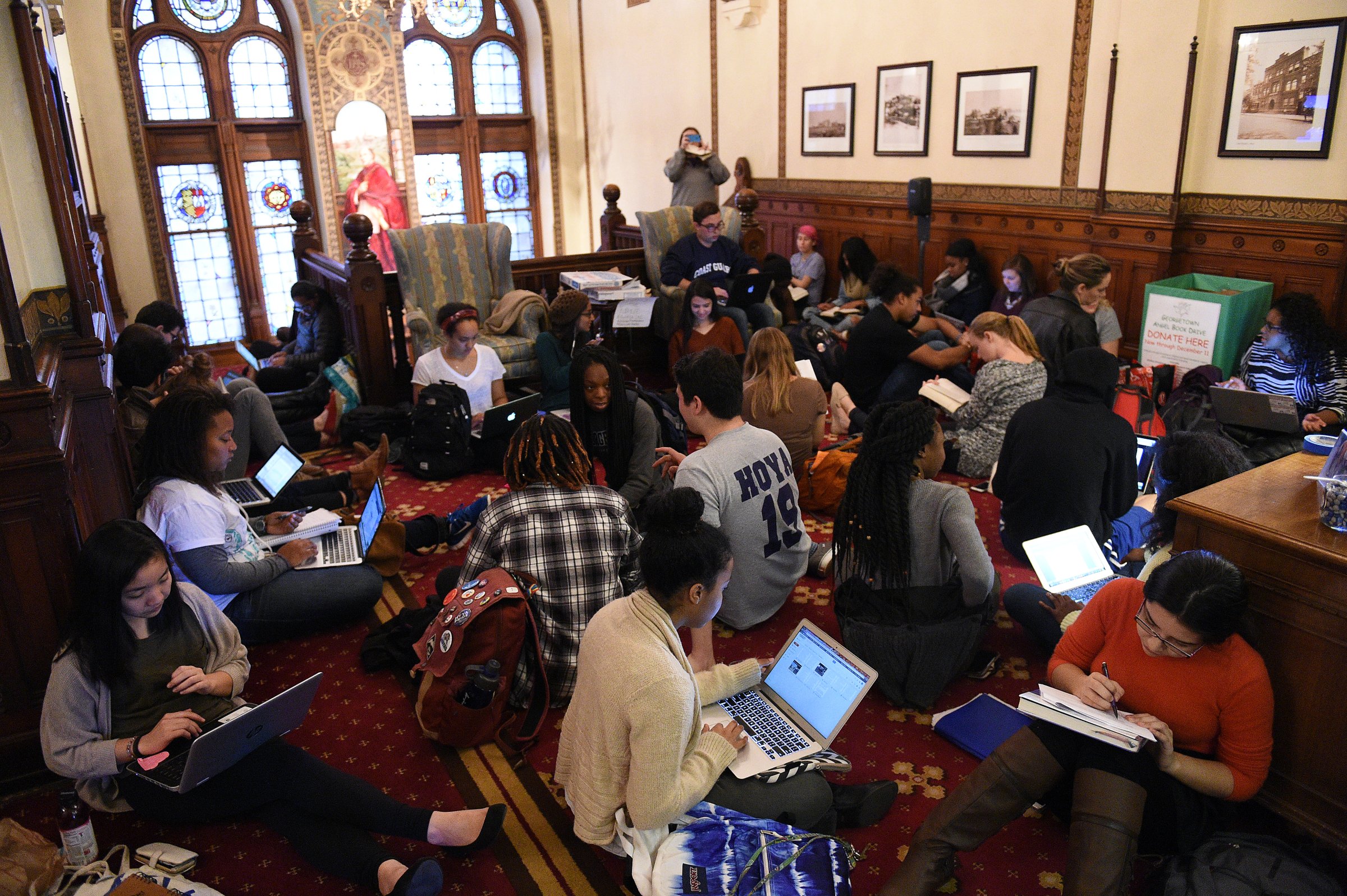
This week Georgetown University announced plans to rename two of its buildings, Mulledy and McSherry Halls, named after school presidents involved in the sale of slaves in the 1830s. They will be known as Freedom Hall and Remembrance Hall until permanent new names are chosen. Will new names really foreground that history of slavery?
The move to rename the buildings has some strong precedents. Place names often commemorate the history and culture of dominant groups: Consider Patrick Henry’s Scotchtown plantation, Thomas Jefferson’s Italian-sounding Monticello, or George Washington’s Mount Vernon, named after a general in the successful siege of Cartagena.
More disturbing, slaveowners also used renaming to claim ownership of their human property. The 18th century Virginia planter Robert “King” Carter admonished his overseer to take “care that the negros both men and women I sent … always go by the names we gave them.” Their newly-imposed names usually echoed the owners’ European identity. Enslaved people might be named after English cities (London, Bristol, Lincoln), or characters from English literature (Hamlet, Juliet) or classical antiquity (Solon, Caesar, Nero, Caesar, Pompey, Mars, Venus, Dido).
Names like these concealed an unpleasant joke at slaves’ expense. Deprived of power, such names set them up to seem deficient in understanding: these “poor ignorant creatures,” the thinking went, did not even know what their own names meant. Along the way, these singular names tried to erase both the culture the slaves came from and their family networks.
So do new names erase the past? Quite possibly the opposite. In an odd way, a newly-minted name also speaks to the power of tradition. Asserting the power not just to choose but to invent your name responds to a past in which that power was denied.
Earlier this year a Duke professor argued that African Americans were to blame for their own segregation, citing their habit of giving unusual names to children and exhorting them to work harder to overcome their historical disadvantages. But his comments only revealed his own ignorance: those names were a repudiation of their disadvantaged past.
There is no simple answer to the question of what to call the Georgetown buildings. What matters is opening up the question and the history behind it. Coming at a time when racism in America is under renewed and intense scrutiny, this is a reminder of a battle that is not yet finished. Whatever happens in Georgetown, we need to make sure that the right side wins. Again.
Margaret Williamson is an emeritus professor at Dartmouth College. She wrote this commentary for the Op-Ed project, a social venture to increase the range of voices we hear.
More Must-Reads From TIME
- The 100 Most Influential People of 2024
- The Revolution of Yulia Navalnaya
- 6 Compliments That Land Every Time
- What's the Deal With the Bitcoin Halving?
- If You're Dating Right Now , You're Brave: Column
- The AI That Could Heal a Divided Internet
- Fallout Is a Brilliant Model for the Future of Video Game Adaptations
- Want Weekly Recs on What to Watch, Read, and More? Sign Up for Worth Your Time
Contact us at letters@time.com